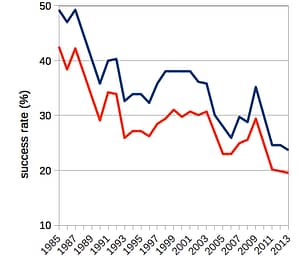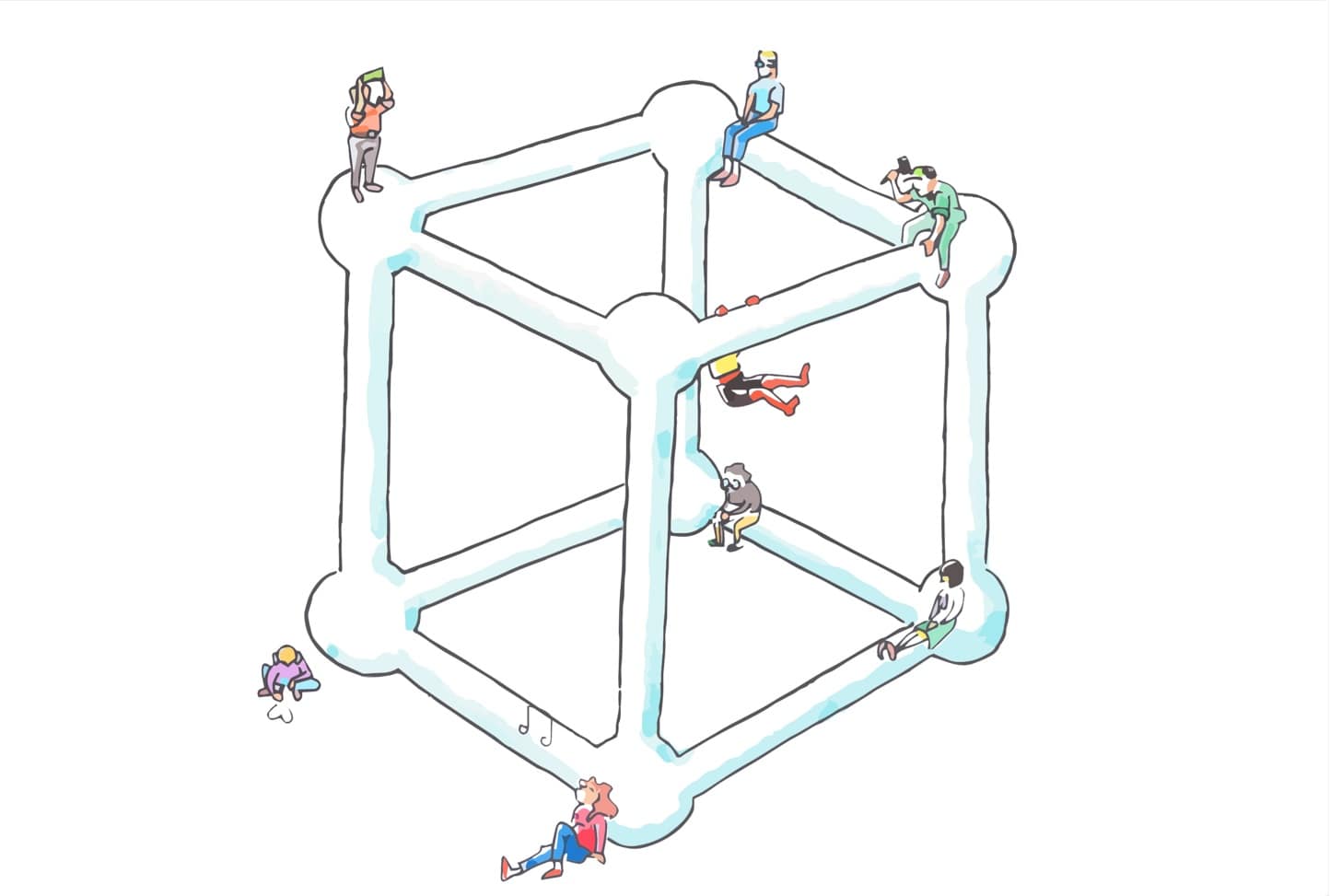
Why are we doing what we are doing?
Many of us gain pleasure from discovering new knowledge. We academics also have a high intrinsic motivation. And we need it, given that we often have to move from project to project—sometimes even from country to country—to finally find a permanent position, or because we have to wait for a very long time until our research gets published. Academia is slow even as its academics rush about, and it can be lonely.
At the same time, it is often emphasized that science relies on cooperation. Compared to the past, when advances were made by the mythical solitary geniuses we now commonly associate with the history of science, networks have become ever more important. Consider major endeavors such as the Large Hadron Collider that discovered the Higgs Boson, or the Human Brain Project that seeks to simulate a human brain in a super-computer. Both heavily rely on hundreds of researchers from many different countries working together.
Of course, science is increasingly about competition too. Many institutions require their employees to receive research grants to move up the career ladder, and sometimes just to keep their jobs. But grant application success rates might be as low as 10-15%. The phrase “publish or perish,” which characterized our work in the 20th century, has become more sinister: “get funds, publish, engage, be cited, or perish.” Although this is more modern, it isn’t better. How bad it is then depends in part on circumstances. For example: some leading biomedical researchers from the USA noted in 2014 that this turn toward “hypercompetition” is fiercest for those who are still looking for a permanent position (i.e., younger scientists).
Still, the rat race is tough for almost everybody. Since the 1980s, the funding rate has been cut by half in some competitions. That is, these important grants have become twice as competitive as they used to be, and thus twice as hard for everyone to win, even before taking into account an individual applicant’s background or circumstances. For some, it’s also worse than for others. It has been shown, for example, that members of ethnic minorities have lower chances of obtaining grants: their applications have a success rate 20% lower than their those of their competitors at the National Institutes of Health in the USA.

The success rates for NIH grant applications dropped by half since the 1980s and are still lower for ethnic minorities (red line) than the majority (blue line).
In this context, I was disappointed that our dean referred only to research grants when he described the quality of our science at the opening of the academic year. No doubt that those who have been successful in grant competitions worked hard and deserve the praise. Yet I also wonder whether there isn’t anything to be said about the content of our research, the surprising new discoveries that have been made, or the new benefits for the society that we live in. (For those interested in exploring, additional details can be found at the Heymans Institute website.)
Is it for the money that we are doing what we are doing? That doesn’t fit at all with a community defined by its intrinsic motivation, and certainly not when the object of that motivation is knowledge.
I am writing as someone who has been successful in these competitions. But I also have enough capacity for self-reflection to wonder if these successes partially depended on luck (at least sometimes), or on being the right person with the right idea and the right supporters at the right moment in the right place. I have certainly benefited from the “neuro hype” that was ongoing since the “Decade of the Brain” in the 1990s. How much of my success has been situational in this way?
Co-applicants and I have sometimes wondered if adding an experiment with a brain scanner – I did some fMRI research in the past – would increase the odds of our receiving a grant, irrespective of whether or not that method was really necessary for answering the research question. (It probably did, even though it wasn’t.) But I am also convinced that we can still learn a lot about human behavior by investigating… behavior! Indeed, I strongly suspect the brain is too complex, and our models of its functioning too simple, for us to learn much about what it means to be human from just interpreting brain scans.
Most disconcertingly, the Dutch government—particularly the Netherlands Organisation for Scientific Research (NWO), whose grants so many of us long for (let’s be honest: often because our universities ask us to)—cannot guarantee a fair competition for everybody. And then if someone tries to prove this point, as I did, State officials would rather invent cover stories than admit their failure and make improvements to their broken system. In my case, this has now been documented and proven in court: officials failed over and over again. But not everybody is so stubborn to keep fighting simply for the fair chance guaranteed to every person in this country by law.
The news isn’t all bad, though. Our Minister of Science and Education Jet Bussemaker gave a speech at the opening ceremony of the new academic year at the Radboud University of Nijmegen. She emphasized the importance of solidarity and academic collegiality and collaboration, over measurable output and rankings in science and education. Indeed, I wish we focused more often on what science is about, and on why we are doing what we are doing.
I wish we focused more on what we have in common, such as our joint interest in discovering knowledge. I wish we emphasized less what separates us, such as research grants that we sometimes received just because of good luck and timing. Finally, I wish that activities like the opening ceremonies at our own university conferred more of the academic spirit. We are, after all, one big scientific community.
Note: An earlier related version of this text was published at the author’s German blog, MENSCHEN-BILDER



